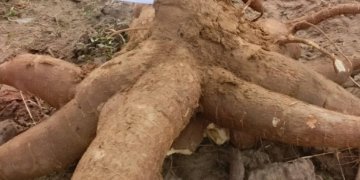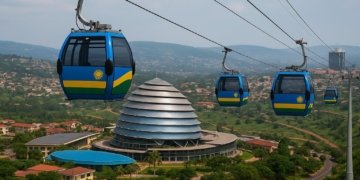WARRAP, South Sudan (BG) – A modest prison farm in Tonj North, South Sudan, has become a beacon of hope, resilience, and transformation.
What began as a simple response to food shortages among inmates has blossomed into a self-sustaining agricultural venture, benefitting those behind bars and the surrounding community.
Faced with chronic food shortages last year, the National Prison Service of South Sudan initially sought external aid.
However, development partners, including the United Nations Mission in South Sudan (UNMISS), encouraged prison authorities to explore self-reliant solutions.
“Their advice was crystal clear,” recalls Malual Deng, one of the project’s early advocates. “They told us, ‘You have to take the first steps, then we will see how that goes and how we can support you.’ I guess we were all surprised at first, but then we felt motivated to take on the challenge.”
Planting the Seeds of Success, From Rehabilitation to Empowerment
Starting with seeds purchased from the local market, prison authorities and inmates worked together to cultivate small plots of land.
The harvest—nutritious okra, eggplants, tomatoes, and traditional greens such as guedi-guedi and rigila—quickly transformed the prisoners’ diets, improving their health and morale.
Captain Gabriel Goum, who oversees the project, reflects on its unexpected success. “Little did we know how well things would develop, despite our small resources,” he said.
The farm soon produced more than the prison could consume. Surplus crops were sold at the local market, generating income and enhancing food security for the wider community.
The project’s impact extends far beyond nutrition. Inmates gain valuable agricultural skills, preparing them for reintegration into society. Meanwhile, revenue from crop sales helps the prison service address urgent needs and reinvest in the farm.
“Our determination and persistence have paid off handsomely,” said Bainam, a clerk with the prison service. “Inmates are engaged in meaningful activity… and our farm is doing very well.”
A Vision for the Future, A Model of Resilience
Despite its success, the project still faces challenges, including limited tools and resources. Yet, those involved remain optimistic about its growth potential.
“If we had proper tools and more resources, we would be able to expand and increase our production,” Bainam adds. “But who knows, maybe we will be able to achieve that on our own as well.”
The Tonj North prison farm is more than a solution to food shortages; it is a model of resilience and self-reliance.
With continued dedication and community support, it exemplifies how local solutions can drive meaningful change, even in the most challenging circumstances.
For South Sudan, projects like this offer a glimpse into a future where communities thrive through innovation, determination, and shared purpose.
Originally by United Nations Mission in South Sudan (UNMISS) , it was rewritten by Felix Tih, Bantu Gazette.

























